News
California companies required to disclose heavy metal content in baby food
10 Jan 2025As of January 2025, baby food manufacturers selling in California must disclose test results for four heavy metals – arsenic, lead, cadmium, and mercury – via an on-pack QR code.
The law, Assembly Bill 899 (AB 899), was signed by Governor Gavin Newsom in October 2023 and requires monthly testing of baby food for the specified contaminants.
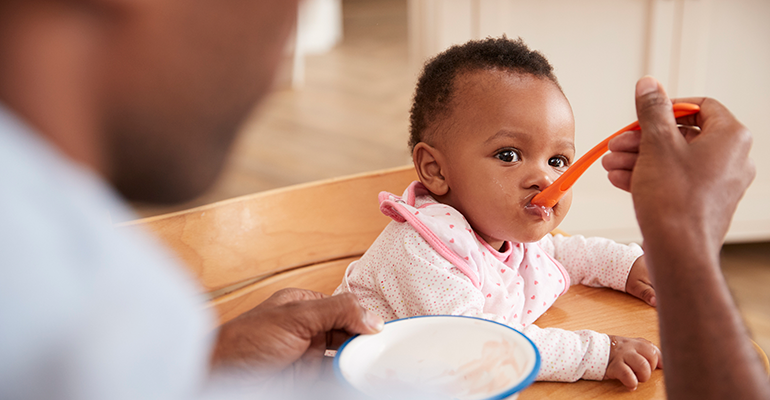
Manufacturers must now provide a QR code on product packaging that links to publicly available test results, including batch numbers and links to the US Food and Drug Administration's (FDA) information on toxic heavy metals.
Response to heavy metal contamination findings
California’s decision to implement AB 899 follows a 2021 US Congressional report that found significantly high levels of heavy metals in major baby food brands, including arsenic levels up to 91 times the legal limit for drinking water and lead levels up to 177 times higher.
Commenting on the likely impact of the new measure, Sarah Sorscher, director of regulatory affairs at the Center for Science in the Public Interest (CSPI), told Ingredients Network: “Some consumers likely will visit a manufacturer’s websites to research baby food brands, and the information will also be used by reporters and consumer advocates. But it should not be up to consumers to shop around for baby food that is not high in lead: this is the manufacturer’s responsibility.”
She added, “The most important impact these bills will have is on corporate behaviour. Manufacturers know how sensitive consumers are to toxic contaminants in food, particularly food served to very young children. You can be sure they are doing everything in their power right now to ratchet up controls so that when testing rolls out, none of their products have to be reported as containing high levels of lead and other toxic heavy metals.”
Sorscher also highlighted ongoing regulatory gaps, stating: “This move is a step forward, but it’s not adequate to protect consumers. Unfortunately, the United States has very few real standards for heavy metal contamination in foods. [The Food and Drug Administration] only this week finalised voluntary action levels for lead in children’s food, a process that has dragged on for years. Without such limits, it is up to each manufacturer to determine what level of toxic metals it will allow in foods.”
QR code transparency
To meet the requirements, brands must now conduct monthly testing for the specified heavy metals and make the results accessible to consumers through the QR codes. However, the law does not define the presentation format for test results, raising concerns about the clarity of the information provided.
Rick Andrew, a consultant specialising in product certification strategies, commented on LinkedIn: “A challenge here will be context in interpretation of the results. What is the baseline level of heavy metals occurring naturally in foods? How does one product compare to another? What are the expected health impacts at the levels being reported? Data is great, but data without context can lead to worse decisions than would have been made with no data at all.”
Other industry experts are more positive. Sieh Ng, a research microbiologist at the Australian Commonwealth Scientific and Industrial Research Organisation (CSIRO) also commented on LinkedIn: “This is a huge milestone for baby food safety! The new law in California requiring mandatory testing and public disclosure of heavy metal levels in baby food will be a game-changer!
“... [T]he ripple effect across the industry will likely lead to more widespread testing, with major manufacturers incorporating QR codes for nationwide access to test results. It will be interesting to see how smart organic brands go above and beyond these requirements, setting themselves apart by demonstrating commitment to safety and quality.”
California setting the standard
While AB 899 currently applies only to baby food sold in California, other states have begun to adopt similar measures. Maryland will require baby food testing disclosures from January 2026, with manufacturers already required to start testing from January 1 of this year.
And on January 6, Virginia state delegate Michelle Lopes Maldonado introduced House Bill 1844, which would also mandate heavy metal transparency starting in January 2026. In addition to testing requirements and a prohibition on the sale of baby food that exceeds a level of heavy metals stipulated by the FDA, the bill also “requires a consumer to report a baby food product to the Commissioner of Agriculture and Consumer Services if the consumer reasonably believes that the baby food is being sold in the Commonwealth with toxic heavy metals that exceed the limits established by the FDA.”
Regulations set in California often influence national practices, and this is expected to happen with the new legislation, potentially driving brands to standardise QR code labelling for product transparency across all markets.
Related news

Snack trends, ingredient claims, and plant-based perceptions: Highlights from Fi Europe 2023, part 1
7 Dec 2023
Value-led snacking, sustainability storytelling, and the importance of having a ‘star ingredient’: we asked consumer analysts and market experts at Fi Europe about the trends and innovations that are shaping the food industry.
Read more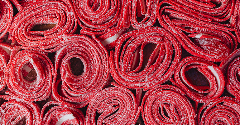
Confirmed: California bans four ‘toxic’ food additives
10 Oct 2023
Four food additives, including the colouring Red No. 3, will be banned in food in the US state of California over safety concerns, with public health campaigners hoping this will spark a nationwide ban in the coming years.
Read more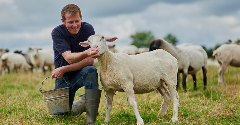
Advocacy groups condemn EU Commission for backpedalling on animal rights
3 Oct 2023
Amid rumours that the EU may abandon its plans to improve animal welfare in farming and end the use of cages, many stakeholders have condemned this possibility and urged the EU to reconsider.
Read more
Poland and Ukraine attempt to resolve grain dispute
29 Sep 2023
Poland and Ukraine have begun talks to try to resolve a dispute regarding the ban on Kyiv’s grain imports that prompted Kyiv to file a lawsuit to the World Trade Organization.
Read more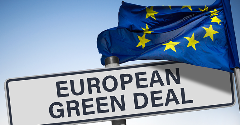
The EU may be set to scrap its sustainability commitments
27 Sep 2023
A speech delivered by President Ursula von der Leyen last week inferred that the EU could be drawing back on its commitments to create a more sustainable and healthier food system.
Read more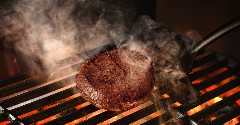
Industry first: Mosa Meat becomes first cultivated meat startup to gain B Corp certification
11 Sep 2023
A first for the industry, Dutch cultivated meat company Mosa Meat announced that it has received B Corp certification and will soon apply for regulatory approval across the globe.
Read more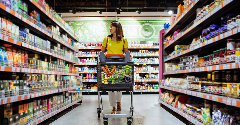
German supermarket trials climate-centric pricing model
29 Aug 2023
German discount supermarket Penny has trialled increasing product prices to mirror their health and environmental costs.
Read more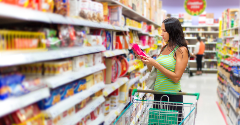
EPR fee delay spurs concerns over UK’s sustainability commitment
8 Aug 2023
The UK government’s decision to push back the introduction of fees for the Extended Producer Responsibility (EPR) due to inflation has raised doubts about whether this sustainability commitment will ever be realised.
Read more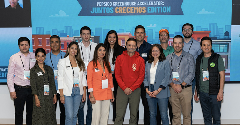
Latino-owned food startups tackle climate change
25 Jul 2023
A growing list of Latino-founded food and beverage startups in the US are putting sustainability at the forefront of their businesses for the sake of the planet.
Read more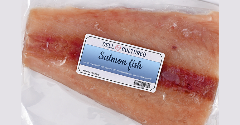
Industry first: The Netherlands approves cultivated meat and seafood tastings
17 Jul 2023
The Netherlands has become the first country in Europe to approve tastings of cultivated meat and seafood in controlled environments, yet there is still a long way to go before widescale commercialisation is achieved.
Read more